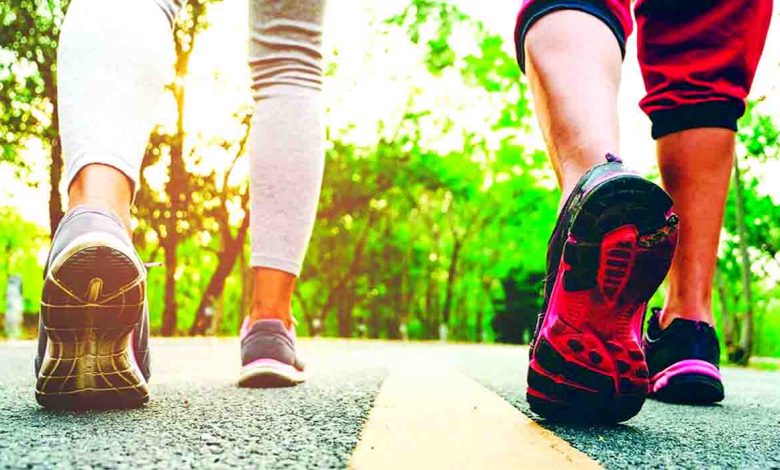Beat corona with 30-minute brisk walk daily!

Thursday, 15 April 2021 | Archana Jyoti | New Delhi
Physical inactivity may land you in ICU or also prove fatal for you in case the virus clings to you, claims study
Regular exercise or a 30-minute brisk walk in your neighbourhood park five days a week while following the social distancing norms can go a long way in beating Covid-19. Physical inactivity may land you in ICU or also prove fatal for you in case the pathogen catches you, according to a study that analysed nearly 50,000 Covid positive adults.
Even patients who were inconsistently active had lower chances for a severe Covid-19 infection, suggesting any amount of physical activity has benefit, said the findings published in the British Journal of Sports Medicine.
“This is a wake-up call for the importance of healthy lifestyles and especially physical activity” said Robert E Sallis, a physician at the Kaiser Permanente Fontana Medical Centre in the US.
Researchers said the potential for regular physical activity to lower the severity of Covid-19 illness should be promoted by public health agencies and that pandemic control recommendations should include regular physical activity across all population groups.
“People who regularly exercise had the best chance of beating Covid-19, while people who were inactive did much worse,” Sallis added.
For the study, the team identified 48,440 adults with a Covid-19 diagnosis from January 1, 2020, to October 21, 2020.
They found 6.4 per cent were consistently active and 14.4 per cent were consistently inactive, with the remainder falling in the inconsistently active category. Among all Covid-19 patients, 8.6 per cent were hospitalised, 2.4 per cent were admitted to the ICU, and 1.6 per cent died.
“What surprised me the most from this study was the strength of the association between inactivity and poor outcomes from Covid-19,” said Deborah Rohm Young from the Kaiser Permanente Southern California.
“Even after we included variables such as obesity and smoking in the analysis, we still saw inactivity was strongly associated with much higher odds of hospitalisation, ICU admission, and death compared with moderate physical activity or any activity at all,” Young added.
The results showed that inactivity is strongly associated with poor Covid-19 outcomes, Sallis said, while suggesting walking 30 minutes a day, five days a week at a moderate pace can prevent Covid-19 affliction.
“Exercise is medicine that everyone should take — especially in this era of Covid-19,” Sallis said.
The study said it is “reasonable to expect” that regular physical activity may mitigate poor Covid-19 outcomes, citing improved immune function, reduction of systemic inflammation, benefits to cardiovascular health and mental health – but that lockdowns and stay-at-home orders have restricted access to venues where people can be active.
Among all of the Covid-19 patients studied, researchers recorded that 8.6 per cent of them were hospitalised, with 2.4 per cent of those admitted to the ICU and 1.6 per cent died.
Those who were consistently meeting physical activity guidelines were less likely to be hospitalised, admitted to the ICU, or die in relation to Covid-19 compared to those who were consistently inactive or only doing some activity.
Researchers say this is the first study that demonstrates that physical activity is an important and modifiable risk factor for severe Covid-19 outcomes.






